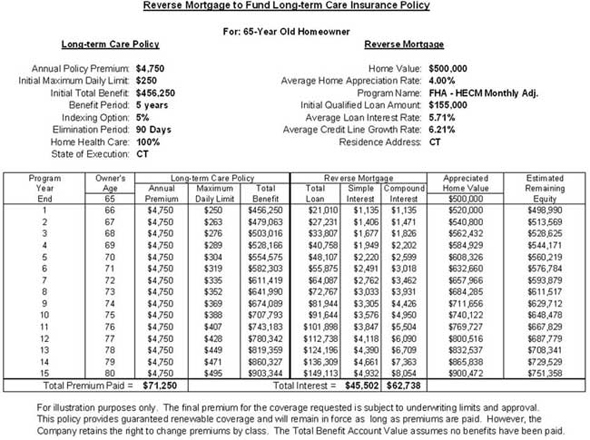First, let's review what a reverse home mortgage is. A reverse home loan is created to enable senior older house owners who own all or the majority of their home to withdraw some of the equity from the house for individual usage Receivers can pick to receive the money as a lump amount, in month-to-month installations, or as a line of credit.
As it is just offered to residents over the age of 62, it is indicated to be the last loan an individual will receive on their home st maarten timeshare in their life time. A reverse home mortgage should be repaid when the property ceases to be the loan recipient's main house. This can occur when the recipient relocations, downsizes, has been in the hospital for over a year, or dies.
Generally, one of 4 things takes place: 1. The recipient's life insurance coverage policy is utilized to pay off the balance of the reverse home mortgage. 2. The recipient's successors sell the residential or commercial property and utilize the earnings to pay off the balance. If the home sells for more than the loan was worth, the successors keep the staying equity.
3. The recipient's heirs refinance and secure a brand-new home loan on the home in order to keep the property. (It is possible to have both a reverse home mortgage and a routine mortgage on the very same residential or commercial property, as long as the routine mortgage has a low loan balance). 4. If the heirs take no action within the designated amount of time, the bank will foreclose on the house to recoup the loan.
The Best Strategy To Use For How Do Reverse Mortgages Work When You Die
Make sure to look carefully at the terms of a reverse mortgage before taking one out, as some loans can bring high fees and rates of interest.
If you get a reverse home loan, you can leave your home to your heirs when you die, but you'll leave less of a possession to them. Your heirs will likewise need to handle paying back the reverse home mortgage, and they might face major issues at the same time, otherwise the loan provider will foreclose.
A "reverse" home loan is a particular type of loan in which older homeowners transform a few of the equity in their home into cash. The cash is typically dispersed in the form of a swelling amount (subject to some restrictions), regular monthly quantities, or a line of credit. You can likewise get a combination of month-to-month installments and a credit line.
This sort of loan is different from routine "forward" home loans due to the fact that with a reverse home mortgage, the loan provider makes payments to the homeowner, rather than the property owner making payments to the lender. Due to the fact that the homeowner gets payments from the loan provider, the homeowner's equity in the home decreases in time as the loan balance gets larger.
About What Metal Is Used To Pay Off Mortgages During A Reset

With a HECM, the loan has actually to be repaid when among the following events happens: the borrower passes away the home is no longer the customer's primary residence (or the borrower moves out completely or leaves due to health reasons for 12 consecutive months or longer) the borrower sells the house (or transfers title), or the borrower defaults on the regards to the loan, like by stopping working to keep up with insurance coverage premiums or home taxes.
But they won't receive title to the residential or commercial property free and clear due to the fact that the property goes through the reverse mortgage. So, say the property owner passes away after getting $150,000 of reverse home mortgage funds. This implies the beneficiaries acquire the house subject to the $150,000 debt, plus any costs and interest that has accrued and will continue to accrue till the debt is paid off.
1. Repay the loan. (With a HECM, the successors can pick to repay 95% of the assessed worth themselves and keep the home. FHA insurance will cover the staying loan balance.) 2. Offer the house and use the proceeds to repay the reverse home loan. (With a HECM, the heirs can offer the house for the total of debt owed on the loan or a quantity that is at least 95% of the current evaluated value of the residential or commercial property.) 3.
4. Do nothing and let the lending institution foreclose. According to an U.S.A. Today post from December 2019, heirs who want to settle a reverse mortgage and keep the house often face months of red tape and aggravation when dealing with the loan servicer. Substandard loan servicing practices frequently impede what should be routine documentation, debt estimations, and communications with customers or successors.
Excitement About Which Of The Following Are Banks Prohibited From Doing With High-cost Mortgages?
The servicer likewise designated the house as uninhabited and switched off the water in the name of home preservation, and arranged a foreclosure sale. This circumstance is not unusual. The U.S. Department of Housing and Urban Development (HUD), the regulator of HECMs, has standards that say servicers of these loans ought to inform survivors and successors of their alternatives and resolve the loan within six months of a death.
If they're selling the residential or commercial property and it's still on the market after 6 months, or they're still actively seeking funding, successors can get in touch with the servicer and demand a 90-day extension, based on approval by HUD. Another 90-day extension can be asked for, again with HUD's approval. However that standards don't avoid the servicer from pursuing a foreclosure during this time.
While you deal with hold-ups or obstructions due to a concern with the home's title, an approaching foreclosure, or a lack of info from the servicer, you'll need to spend for the home's upkeep, taxes, and insurance, and interest and charges will continue to accrue on the financial obligation while you try to exercise any of the above choices (after my second mortgages 6 month grace period then what).
Reverse home loans are made complex and are typically not the very best choice for older property owners looking for access to additional cash. Before getting a reverse home mortgage and tapping into your home equity, you ought to make certain to explore all of the choices readily available to you. For example, you might qualify for a state or regional program to reduce your expenses or you could consider downsizing to a more cost effective house.
Fascination About How Do Reverse Mortgages Work When You Die
aarp.org/revmort. Although you'll have to finish a counseling session with a HUD-approved counselor if you desire to get a HECM, it's also extremely suggested that you think about speaking with a financial coordinator, an estate planning attorney, or a consumer protection lawyer before taking out this sort of loan.

Upon the death of the borrower and Eligible Non-Borrowing Spouse, the loan ends up being due and payable. The successors have thirty days from getting the due and payable notice from the loan provider to buy the house, sell the home, or turn the home over to the loan provider to satisfy the financial obligation.
Your beneficiaries can speak with a HUD-approved real estate counseling firm or an lawyer for more details. Some beneficiaries might lack funds to pay off the loan balance, and might require to sell the home in order to pay back the reverse mortgage. With a reverse home mortgage loan, if the balance is more than the house deserves, your successors don't have to pay the distinction.